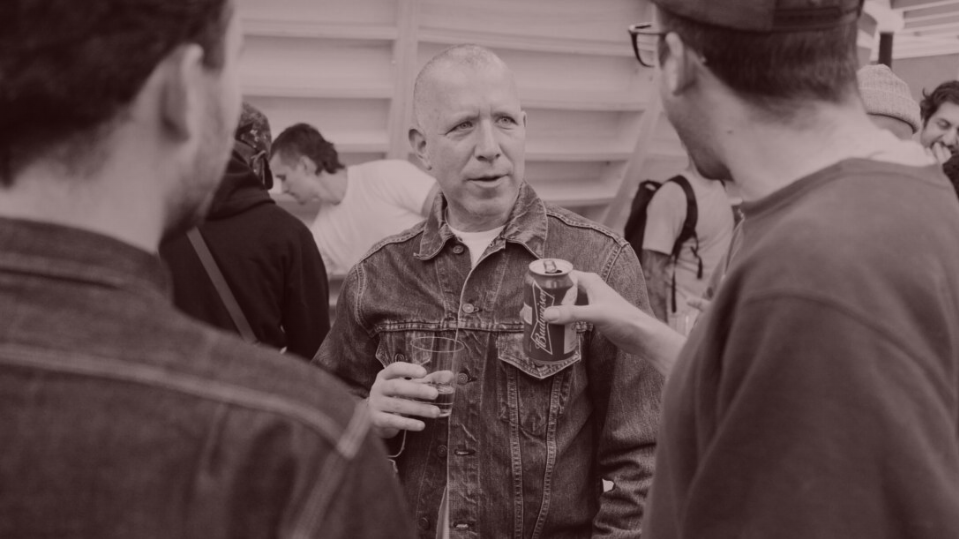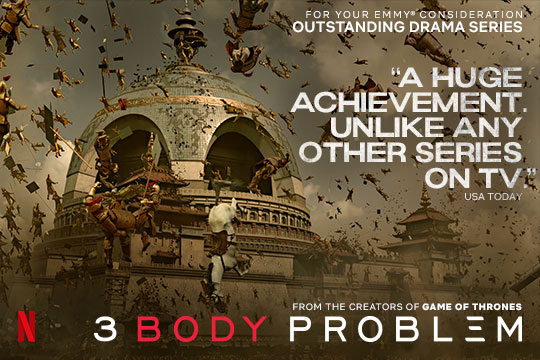 |
 |
|
Hi, and welcome back to Line Sheet. Are you going to this Japanese women’s Joshi wrestling thing tonight?
Everybody’s in L.A. this week. (Or in the Valley, having lunch at Sportsmen’s Lodge.) If you’re here next week, join me and the costume designers from many of your favorite HBO and Max Originals shows—Hacks, The Gilded Age, The Righteous Gemstones, The Sympathizer, and True Detective: Night Country—for conversation and cocktails. It’s all happening at the Roosevelt Hotel on Monday, June 3, at 7 p.m. RSVP asap.
🚨🚨 Programming note: Tomorrow on Fashion People, my guest is the industry’s favorite retail dad, Mickey Drexler: chairman of Alex Mill, the guy who made J.Crew, Madewell, and Gap cool, and creator of Old Navy. (Oh, yes, he also fixed Ann Taylor and did his best with Banana Republic—I don’t want him to call me after he reads this to complain that I didn’t mention those two brands.) Anyway, as you’ll see, the conversation is a little free-flowing, but it captures the essence of what makes Mickey so great. Subscribe here not to miss it.
Today, I’m tackling the perhaps inevitable sale of Supreme. Plus, more print media news, this time regarding New York mag and The Cut. (Magazines are the new records?) Also, we’ve got to start following this Abercrombie insanity more closely. (So many people must’ve gotten rich-ish yesterday off the stock jump!) There’s more, so please, if you are not yet a Puck subscriber, figure it out, okay? And if you are a Puck subscriber but want to set up some accounts for your coworkers—remember, we physically discipline frequent forwarders—feel free to hit up Fritz@puck.news for some help and possibly even a preferred rate. Just say you know me…
Mentioned in this issue: James Jebbia, Supreme, VF Corp, Abercrombie, Fran Horowitz, Louis Vuitton Americas, The Cut’s print issue, Calvin Klein, jellies, Stefan Larsson, Eva Serrano, Veronica Leoni, Jeremy Allen White, Capri, Vans, The North Face, Tremaine Emory, Coveteur, and many more.
|
|
|
- Abercrombie is like Keanu Reeves in Speed: I honestly don’t remember how that movie ended, and I don’t know how this sales streak will conclude, either, but the Columbus-based maker of white linen skorts and putty-colored tailored pants (sorry, but yuck) is on a fast-moving bus that cannot be stopped. Yesterday, the company posted a 22 percent revenue jump in the first quarter, the highest in its history. Earnings per share hit $2.14, well beyond analyst expectations of $1.74. The stock spiked 24 percent on the news, meaning that execs with RSUs did very well, at least on paper.
What the heck is going on? Is Fran Horowitz a genius? What makes her “playbook” so great? I read through the earnings call transcript, and Horowitz made one comment that really helps to explain Abercrombie’s success. She discussed “inventory discipline and agile chase capabilities,” which basically translates to not making too much product while simultaneously having the capacity to move quickly into production when a new trend takes hold on TikTok.
But unlike many traditional fast fashion brands, which also employ these tactics, Abercrombie is not trying to be everything to everyone. Instead, the company is trying to be one thing to a lot of people. Its “wedding” category is a perfect example. Whenever I see a big retailer launching wedding dresses, I assume they are endeavoring upon some sort of Hail Mary. (There’s a whiff of desperation of entering a market that you know very little about, beyond that people are always getting married.) But Abercrombie has taken the category and built something practical around it, designing outfits for those terrible bachelorette parties in Nashville and Savannah where everyone is drinking hurricanes on a bar on wheels. Anyway, tell me more? What do you all think of Fran?
- Your friendly LVMH H.R. update: Megan Grant, the new C.E.O. of Louis Vuitton Americas, starts on Monday, as I noted a month ago. I also heard from another source close to… many things… that there’s no way Serge Brunschwig is getting the fashion group C.E.O. job: not on a full-time or interim basis, it turns out. The appointment doesn’t make much sense to me, either, but shrug! More to come, always.
- The Cut is launching a stand-alone print issue: Like I’ve been saying, advertisers are really into print these days. And so, New York mag and its owner, Vox Media, are publishing a separate Fall Fashion issue this September that’ll be sent to subscribers and live on newsstands, at least the few that still exist. This isn’t the first time New York has done something like this: I remember stand-alone fashion issues from the Adam Moss era. (It was called New York Look and ran for three issues in 2007 and 2008, pegged to the collections. Remember the fashion director, Harriet Mays Powell? The project was abandoned around the time everything crashed, also known as the Great Recession.) Anyway, I suspect that if this first effort by The Cut is a hit with audiences and advertisers alike, they’ll re-up it for February.
- The Calvin Klein conundrum: I have too much to say and yet also nothing to say regarding the appointment of Veronica Leoni as the new creative director of Calvin Klein Collection, which has been on hiatus since Raf Simons “amicably parted ways” with the company in 2018. It wasn’t Simons’s fault. He and his team were tasked with building a more accessible version of Gucci—which, at the time, was the hottest brand with the most popular designer and a booming accessories business—even though they were missing the infrastructure to pull it off.
But that was a C.E.O. ago, and Stefan Larsson, who now leads parentco PVH, has spent the last four years streamlining and resetting the business. The appointment of Zara executive Eva Serrano as global president of the Calvin brand last year seemed to have really put things in motion, and so it makes sense that they would want to relaunch Collection—the high-end line—in order to further communicate what the brand is about in 2024 versus what it was about in 2018 or 2010 or 1981. It’s fine that Jeremy Allen White sunned himself on a couch (The Bear returns June 27) for a prototypical Calvin billboard—and that people liked it—but that doesn’t move the brand’s story forward. As long as Calvin Klein can be reduced to an advertisement featuring a short king (okay, the short king) in a pair of tighty whities, it can also be reduced to a line of underwear and bras (and maybe jeans) that you buy at Macy’s or Marshalls or somewhere else sad.
Is Leoni the person to write the new chapter? How would I know? Again, Calvin is not an easy brand. What Raf Simons did there during his short stint will be on moodboards for decades, or forever, but Calvin Klein wasn’t always set up to function as a designer business: Minimalism, after all, is nearly impossible to be original about. What is there new to say? If Leoni can answer that riddle, we’re in for a fun ride. If she can’t, it’ll be back to the drawing board for Larsson, Serrano, and the others.
- Everything is a mess: Not sure if you saw those Capri numbers—sales were down 8 percent from the same quarter last year—but let me tell you… pretty much everyone in luxury is having a tough time right now. The retailers aren’t paying. There are rumors of more bankruptcies, or administration for those Brits. (I’ve heard France’s Smallable, the chic, kids-focused multi-brander, and famed British department store Liberty of London are both having a difficult time.) Investors don’t want to put up money for apparel—neither for brands, nor retailers. Big luxury brands are down double digits and you don’t even know about it. It’s tough out there!
What should we do? Well, companies with real estate holdings and diversified portfolios (cough, LVMH) are better off than most. I do think this downswing is mostly still due to the fact that people shopped in a feverish way during—and right after—the pandemic, and companies somehow thought this would last forever. There’s also something to be said about the marked change in consumer behavior that has nothing to do with having money, and everything to do with how people spend their money. (Mostly online, but also on luxury items and experiences other than fashion. Fancy hotels. Furniture. Mushrooms.) I felt this shift coming right before the pandemic; it’s simply taken five years for it to begin to take shape.
It’s not an apples to apples comparison, but I suggest you listen to this recent episode of The Town, my Puck partner Matt Belloni’s podcast, where he attempts to explain why the Memorial Day box office was so awful. The film and fashion industries are both creative businesses that are constantly fragmenting and consolidating and then fragmenting again, and Matt makes various points about Hollywood that are relevant to this situation. In the end, people aren’t going to the movies for the same reason they’re not going to stores: They don’t have to show up in order to get what they need. I don’t think there’s a way to reverse that pattern. Instead, these industries have to think of new ways to take the best of the old world and repackage it for the reality of now.
|
 |
| Jebbia Mind Tricks |
| News and notes on the rumored Supreme trunk show, what went wrong under VF Corp rule, and the James Jebbia of it all. |
|
|
|
| Did VF Corp, the down-on-its-luck owner of modern-heritage-ish brands like Vans and The North Face, hire Goldman Sachs earlier this month to market its smaller brands, like the cult luxury streetwear brand Supreme? Nobody is denying the rumor, nor will they confirm, but it sure seems like VF is motivated to shake up its portfolio. The company’s market capitalization is down to $4.7 billion from nearly $40 billion in 2019, and the activist investor Engaged Capital is pounding on its walls. The company is also under pressure to fix Vans, whose sales were down 26 percent in the most recent quarter.
The Supreme rumors are everywhere in the industry. Just this past week, I heard some light gossip that VF turned down an offer from Saudi Arabia’s Public Investment Fund. (VF did not respond to a request for comment, and other people called bullshit on the entire scenario.) There was also speculation that a potential investor is looking to form a new “very cool” strategic group, with Supreme as the linchpin. (Wow, a dream. But, again, who knows. VF once again didn’t have anything to say about it.)
Here is what I do know is true. Most strategic groups are essentially private equity firms disguised as brand builders, and VF has been transparent that its goal is to increase sales and investor dividends. And as long as Supreme continues to limit its distribution to its own stores and e-commerce, it will never achieve the explosive growth rewarded by Wall Street. While Supreme posted double-digit revenue growth in the first quarter, it still wasn’t enough to move the needle for the overall group. Especially when Vans, along with North Face, is in a slump.
Supreme may be the easiest brand for VF to part with, in part, because it’s an outlier in the portfolio. Despite its unabashed focus on profits and performance, VF’s brands sell items that serve a function, that are less likely to be marked down, and that are not trend-driven. Vans has its slip-on sneaker, North Face has the winter shell, Timberland has the boot. Supreme has… a screen-printed t-shirt?
|
|
|
|
|
| The issue for VF, of course, is that you can’t sell Supreme without the buy-in and partnership of James Jebbia, the brand’s still very clued-in and influential founder. When VF bought Supreme from Carlyle Group in 2020 at a $2.1 billion valuation—doubling Carlyle’s $500 million investment in three years—the company wasn’t just buying the brand. It was (expensively) acqui-hiring Jebbia, who could teach VF executives about creating desire, building community, keeping things direct-to-consumer, that sort of stuff. There was certainly a hope that Vans and the other VF brands, weighed down by the traditional way of doing things, could filch some of Supreme’s magic.
As it turns out, however, Jebbia is a guy, not a brain trust. When the Supreme deal was announced, the company said it was looking to generate $1 billion in revenue through international and D.T.C. expansion. Instead, revenue appears to have peaked in 2022 at $562 million, before falling to $523 million last year. Its sales are climbing again, but remember, this was a New York company run by a bunch of dudes who had never answered to anyone before. And anyway, the genius of Jebbia is the kind of tactile knowledge that takes years to imbue into a parent company. Also, he’s a mega, mega rich 60-year-old man now, and may have lost the incentive to remain so in tune with the culture.
There have been other miscalculations, too, such as Jebbia’s decision to hire Tremaine Emory as Supreme’s creative director in 2022. Nothing against Emory, who suffered a terrifying aortic aneurysm just a few months into the job, but he was probably not the right fit, health issues notwithstanding. There were disagreements, for instance, over imagery on product, including a t-shirt screen-printed with an image of “Black men being hung,” as Tremaine described it on Instagram. But even if Emory had never entered the picture, those first couple of years at VF would have been tricky.
Despite working through three different investor partnerships at least—and there very well could have been more before Goode Partners—Jebbia’s grip on the business remains strong. Somehow, he has managed to continue working in the way he prefers. Perhaps these investors were simply good investors, knew Jebbia was a retail genius, and let him do his thing. Sure. However, I can’t help but assume he negotiated each deal to ensure he always had a seat at the table. That, in itself, is the feat.
If VF does offload Supreme, he will undoubtedly do his thing again. Jebbia may indeed be the Ralph Lauren of his generation: he isn’t going anywhere, and he will forever be in control.
|
|
|
| What I’m Reading… And Listening To… |
|
| Number one fashion rule: Just buy the thing you want. I promise, if you don’t, you’ll end up spending more money over time trying to fill a hole only fillable by the thing you want. [The Cut]
Another great reason to take Ozempic: It cuts the risk of kidney failure… and death! Just make sure you don’t take too much and have an accident. [Scientific American]
One of my favorite people, Cherry Bombe’s Kerry Diamond, is on one of my favorite podcasts. [I Guess I Have to Stop Making Fun of the Name]
I wonder if the Coveteur shuttering news will make RHONY. [Adweek]
Also, it gets really hot in the summer, which is the main reason why people wear sundresses. [Vox]
Sam is right that merch as a runway item is dead, but it’s important to remember that people are cheesy AF and will continue wearing merch forever. It will remain a great volume and margin driver, the lipstick of apparel. [GQ]
Amanda Mull is back! This week, she takes on Dave & Busters, which has really nothing to do with fashion, but you should be reading everything she writes. [Bloomberg]
This podcast (minute 46:50) and this ode to Pat Riley sort of make the same point about why most men dress so poorly. (Most women, too, but the men are worse off.)
Destination Cruise Show Season continues: If you were at the Balenciaga show in Shanghai, let me know what you thought! [Vogue Runway]
|
|
|
| And finally… It’s a good time to remind everyone that jellies hurt your feet. Blisters and cuts are unattractive.
Until Monday,
Lauren
|
|
|
|
| FOUR STORIES WE’RE TALKING ABOUT |
 |
|
 |
| Reed’s Digest |
| A candid conversation with conservative lobbyist Ralph Reed. |
| TINA NGUYEN |
|
 |
|
 |
| The Sephora Wars |
| The latest obsessions consuming beauty industry insiders. |
| RACHEL STRUGATZ |
|
|
|
|
|
 |
|
|
|
Need help? Review our FAQs
page or contact
us for assistance. For brand partnerships, email ads@puck.news.
|
|
You received this email because you signed up to receive emails from Puck, or as part of your Puck account associated with . To stop receiving this newsletter and/or manage all your email preferences, click here.
|
|
Puck is published by Heat Media LLC. 227 W 17th St New York, NY 10011.
|
|
|
|










